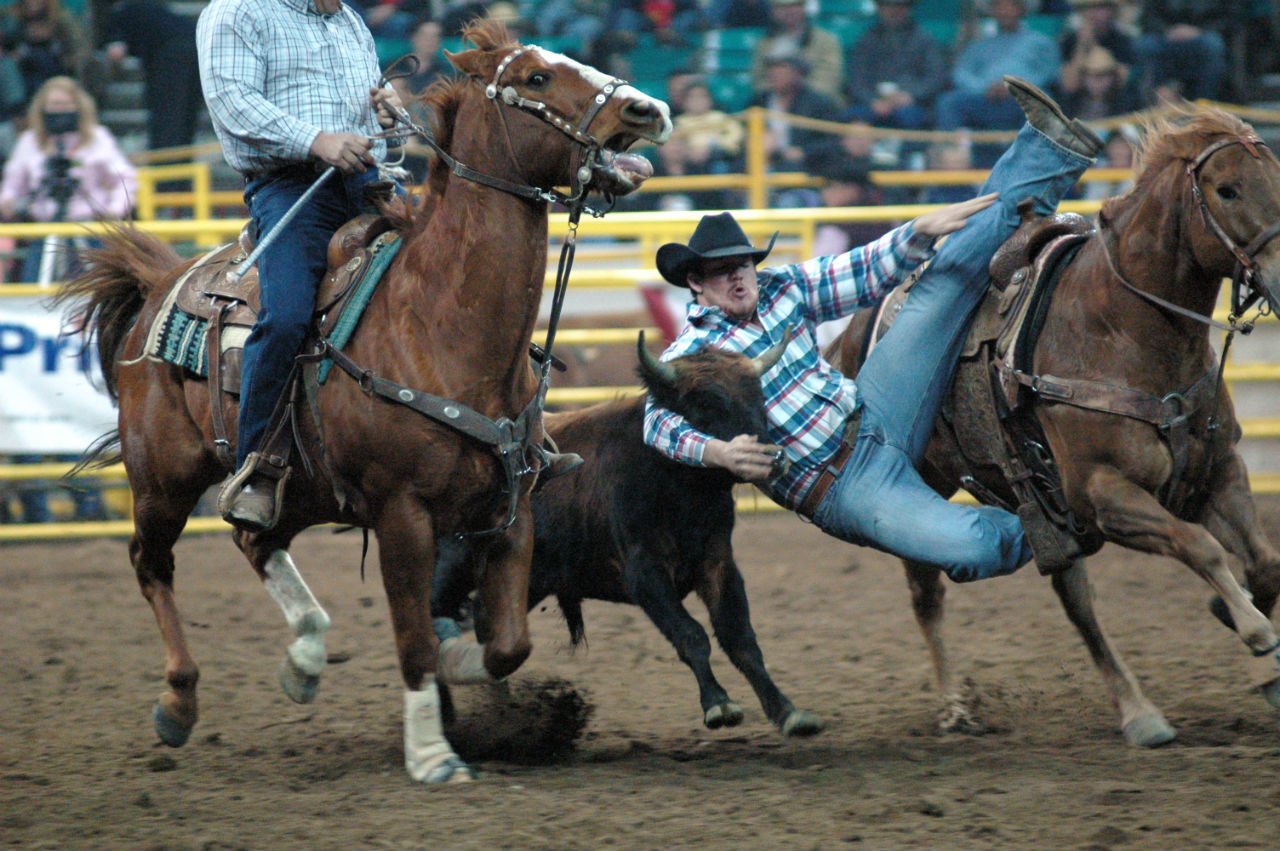Words you didn’t actually know were Spanish
English is a Germanic language with obvious roots in, well German, and the occasional stem from French, because we like to borrow things. But did you know that there are a lot of words we use in English that actually have Spanish origins? Here are some to get you started; which did you already know?

Los Angeles via Pixabay
Places
A number of places — predominantly in America — have Spanish roots in their titles. This is largely thanks to the historical shift in the Mexico/U.S. border, though these Spanish influences do go a little further afield than just there.
Alcatraz means pelican in ‘old’ Spanish, Colorado means red-colored, Florida means flowery, and Montana comes from montaña, or mountain. Texas is from tejas, which means friends or allies, while Las Vegas means the meadows, and Santa Cruz means holy cross. Even the very American El Paso comes from Spanish, meaning the pass.
Meteorology
Spanish has a thing or two to say about our weather! Breeze comes from brisa which means a cold, northeastern wind, while tornado comes from tronada, or thunderstorm. And while you’re watching a weather report, remember that sierra means mountain range, and canyon comes from cañón, which means tube or gorge.
Conflict
You’ve heard of the Spanish Armada, of course; the word armada means armed in Spanish. And while we’re talking of naval battles, it is worth remembering that our flotilla comes from the Spanish for fleet. Our conquistadors are conquerors, and our vigilantes are watchmen. And when we wage guerilla warfare, involving small groups of fighters undertaking small raids and ambushes, we should remember that the word guerilla actually means small war. Though if you are a renegade, you might just rebel against any form of war.

Little armored one via Pixabay
Wildlife
It’s pretty obvious when you think about it that the word alligator has Spanish origins. The word comes from el lagarto, or the lizard. Similarly, armadillo is an obvious one for having a Spanish sound. This means little armored one which is both truthful and kind of cute. The burro, which is a small donkey in the Americas, means exactly that — donkey. Whereas the feisty mustang comes from mustango/mesteño, which means untamed. And on to less pleasant creatures, we have Spanish to thank for their names too. Cockroach comes from the anglicization of cucaracha, and mosquito means little fly.
Cowboys
While we’re on the subject of wildlife it would be good to look at some of the language that accompanies a life on the plains. A corral is a pen or yard, while the lasso to catch those horses for the corral comes from laso, meaning tie. Cowboys might use a quirt to control their horses, which comes from cuarta meaning quarter. Though if it all goes wrong they might have a stampede on their hands — which comes from estampida.
We all know cowboys work on ranches which come from rancho meaning very small rural communities. We know they wear chaps as leg protection — but we didn’t know that the word comes from the Spanish chaparreras! And finally the rodeo, the most enduring image we have of life as a cowboy comes from Spanish too. The word is from the Spanish verb rodear, which means to go around. Obviously.

Rodeo via Wikimedia
Something cultural
Those bodegas you run to when you’re in need of a quick fix of something comes from the Spanish word for cellar. And we use the word fiesta sometimes to mean a party, which is exactly what the word means. We might have them on a small scale on our patios, or on larger ones in our town plazas; patio is Spanish for inner courtyard while plaza means public square.
Many of us are aficionados of artists and performers, or in other words, fans. The word comes from the verb aficionar which means to inspire affection. We find some men suave, which comes from the Spanish word for smooth. Others we describe as lotharios, a word we have the novel Don Quixote by Miguel de Cervantes to thank for, where lothario is used to describe an untrustworthy seducer. Don Quixote also gave us quixotic, which means to undertake a task that is unrealistic or foolish, and gets its name from the delusional knight who is the protagonist in the book. Are we, as word lovers, aficionados of Cervantes, then? Yes, we like to think so!
English, then, has incorporated a lot of words from Spanish and taken them on as its own. Does that make us all conquistadors in a way? Perhaps! If your interest is piqued and you can now see more similarities in English words taken from Spanish, perhaps it’s time to brush up on your Spanish skills.
